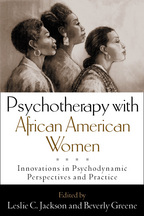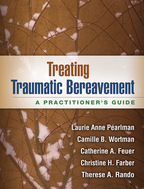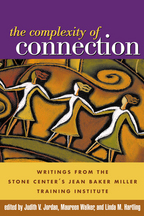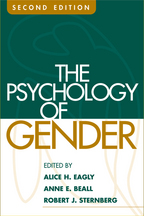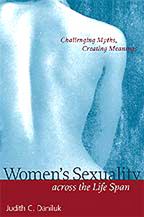Psychotherapy with African American Women
Innovations in Psychodynamic Perspectives and Practice
Edited by Leslie C. Jackson and Beverly Greene
Hardcover
Hardcover
orderJuly 11, 2000
ISBN 9781572305854
Price: $54.00 298 Pages
Size: 6" x 9"
“The book provides important insights into a number of issues seldom addressed elsewhere in the literature. What I found to be particularly interesting and useful was the author's elucidation of specific issues including: the internalization of race-based traumatic experiences....Clinicians, teachers, supervisors and students of psychodynamic psychotherapy, as well as others involved in working with African-American and other women of diverse racial and cultural backgrounds, should read this book....I congratulate the authors for raising our level of consciousness and for their contribution to the literature.”

—Transcultural Psychiatry
“Jackson and Greene, experienced scholars and clinicians, have provided an important text and guide to the complexities of psychodynamic therapy with African American women. This thoughtful book reaches into the heart of our culture and extracts essential knowledge to help African American women thrive and help therapists reach a deeper understanding of their reality.”

—Gail E. Wyatt, PhD, Department of Psychiatry, University of California, Los Angeles; author of Stolen Women: Reclaiming Our Sexuality, Taking Back Our Lives
“This long overdue book will enlighten service providers to the unique experiences of African American women. These clients endure the twin traumas of racism and sexism. Mental health professionals who ignore, deny, misinterpret, or stereotype their issues provide poor treatment. This book is a breath of fresh air. It is certain to strengthen effective communication between clinicians and their African American female clients. I highly recommend it.”

—Alvin F. Poussaint, MD, Professor of Psychiatry, Harvard Medical School and Judge Baker Children's Center, Boston, Massachusetts
“This volume covers a wide range of topics related to provision of psychotherapy with African American women. There is much that is instructive in the volume's coverage of trauma and abuse, self-concept, familial roles, body images, and other issues. In addition, its discussion of lesbian and bisexual concerns represents a unique contribution to understanding the place of sexual orientation in the therapeutic milieu. Therapists of all cultural backgrounds and theoretical persuasions should find the volume a useful guide to often unexplored issues associated with race, ethnicity, and social class. More broadly, I would recommend it to mental health professionals in a wide range of treatment, education, and training settings where African American women receive care.”

—Henry Tomes, PhD, Executive Director for Public Interest, American Psychological Association
—Transcultural Psychiatry
“Jackson and Greene, experienced scholars and clinicians, have provided an important text and guide to the complexities of psychodynamic therapy with African American women. This thoughtful book reaches into the heart of our culture and extracts essential knowledge to help African American women thrive and help therapists reach a deeper understanding of their reality.”
—Gail E. Wyatt, PhD, Department of Psychiatry, University of California, Los Angeles; author of Stolen Women: Reclaiming Our Sexuality, Taking Back Our Lives
“This long overdue book will enlighten service providers to the unique experiences of African American women. These clients endure the twin traumas of racism and sexism. Mental health professionals who ignore, deny, misinterpret, or stereotype their issues provide poor treatment. This book is a breath of fresh air. It is certain to strengthen effective communication between clinicians and their African American female clients. I highly recommend it.”
—Alvin F. Poussaint, MD, Professor of Psychiatry, Harvard Medical School and Judge Baker Children's Center, Boston, Massachusetts
“This volume covers a wide range of topics related to provision of psychotherapy with African American women. There is much that is instructive in the volume's coverage of trauma and abuse, self-concept, familial roles, body images, and other issues. In addition, its discussion of lesbian and bisexual concerns represents a unique contribution to understanding the place of sexual orientation in the therapeutic milieu. Therapists of all cultural backgrounds and theoretical persuasions should find the volume a useful guide to often unexplored issues associated with race, ethnicity, and social class. More broadly, I would recommend it to mental health professionals in a wide range of treatment, education, and training settings where African American women receive care.”
—Henry Tomes, PhD, Executive Director for Public Interest, American Psychological Association

